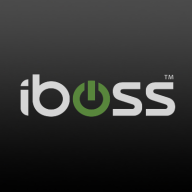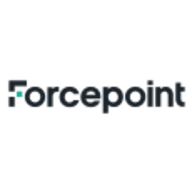


Fortinet FortiGate and Forcepoint ONE are competitive network security solutions. While Fortinet FortiGate stands out for its robust cost-effective measures, Forcepoint ONE's advanced threat detection and data security capabilities indicate its strength for organizations aiming for rigorous data protection.
Features: Fortinet FortiGate boasts scalable network security, firewall protection, and comprehensive threat management, making it suitable for seamless integration with existing infrastructure. Alternatively, Forcepoint ONE enhances data security via advanced threat detection and strong data protection policies, focusing on safeguarding sensitive information.
Room for Improvement: Fortinet FortiGate could enhance its cloud integration and speed of deployment to match modern needs. It might also benefit from more intuitive user interfaces. Forcepoint ONE may require improvements in pricing competitiveness and simplifying some advanced features to enhance user accessibility.
Ease of Deployment and Customer Service: Forcepoint ONE offers fast, cloud-based deployment for minimal on-premises setup, accompanied by proactive customer support. Fortinet FortiGate requires detailed configurations but provides comprehensive support, ensuring smooth integration with existing systems.
Pricing and ROI: Fortinet FortiGate is often highlighted as a cost-effective solution, offering a favorable ROI for budget-conscious organizations. Forcepoint ONE, while potentially higher in initial investment, presents strong ROI potential for environments requiring deep data protection and advanced threat detection capabilities.
| Product | Market Share (%) |
|---|---|
| Fortinet FortiGate | 6.3% |
| iboss | 2.2% |
| Forcepoint ONE | 1.4% |
| Other | 90.1% |



| Company Size | Count |
|---|---|
| Small Business | 6 |
| Midsize Enterprise | 6 |
| Large Enterprise | 5 |
| Company Size | Count |
|---|---|
| Small Business | 6 |
| Midsize Enterprise | 3 |
| Large Enterprise | 12 |
| Company Size | Count |
|---|---|
| Small Business | 350 |
| Midsize Enterprise | 130 |
| Large Enterprise | 187 |
Iboss offers a comprehensive cloud-based security platform valued for its scalability and autonomous features, ensuring robust security with easy deployment and management capabilities.
Renowned for its robust security architecture, Iboss integrates seamlessly within diverse networks, delivering efficient granular filtering and advanced content categorization. Its single pane of glass console provides ease of management, allowing rapid scalability suitable for rapidly deploying environments. Operates in BYOD setups due to inline filtering without device installation. Integration with cloud-based applications enhances user control, and features like SASE, SSL inspection, and ChatGPT risk protection stand as highlights. Despite its strengths, users have pointed out areas for enhancement like direct navigation in reports, SSL decryption, and better cloud integration while having room to improve data loss prevention.
What are the most important features of Iboss?The usage of Iboss spans educational institutions, specifically K-12, to enforce internet policies, protect data, and support remote work environments. It provides web filtering and security frameworks to ensure safe browsing. Its platform-as-a-service model offers flexibility for both cloud-based and on-premises requirements, integrating seamlessly to deliver enhanced security features suitable for various deployment needs including zero trust, CASB, and network security for work-from-home setups.
Forcepoint ONE is a comprehensive cybersecurity platform that provides organizations with a unified approach to protecting their critical data and assets. It offers a range of solutions that cover everything from network security and cloud security to data protection and insider threat prevention.
With Forcepoint ONE, organizations can gain complete visibility into their security posture, identify potential threats, and take proactive measures to mitigate risks.
One of the key features of Forcepoint ONE is its ability to provide real-time visibility into user behavior across all endpoints, networks, and cloud environments. This allows organizations to quickly identify and respond to potential threats, such as insider threats or malicious activity from external actors. Additionally, Forcepoint ONE offers advanced threat intelligence capabilities that leverage machine learning and AI to detect and respond to emerging threats. Another important aspect of Forcepoint ONE is its data protection capabilities.
The platform offers a range of solutions for protecting sensitive data, including data loss prevention (DLP), encryption, and secure web gateways. These solutions help organizations ensure that their critical data is protected both at rest and in transit, regardless of where it is stored or accessed.
Forcepoint ONE is a powerful cybersecurity platform that offers a comprehensive set of solutions for protecting organizations against a wide range of threats. With its advanced threat intelligence capabilities, real-time visibility into user behavior, and robust data protection features, Forcepoint ONE is an ideal choice for organizations looking to take a proactive approach to cybersecurity.
Fortinet FortiGate excels in providing integrated VPN, firewalling, and Unified Threat Management (UTM) with centralized management and high availability. It supports remote access and comprehensive threat protection, making it a preferred choice for securing networks.
Fortinet FortiGate offers a robust security platform with features such as strong intrusion prevention, application control, and web filtering. Its integration with Active Directory and SD-WAN functionality provides scalable solutions for large networks. Users appreciate its ease of use through centralized management interfaces, ensuring robust security with flexible configurations. However, FortiGate could enhance its graphical interface and technical support responsiveness, address firmware bugs and costly licensing, improve logging, integrate better with third-party tools, and strengthen scalability and memory for log storage. Complexity in configuration and the need for intuitive features are noted challenges, and there's a demand for advanced security, zero-trust capabilities, and AI integration.
What are the key features of Fortinet FortiGate?Fortinet FortiGate is widely implemented across industries like education, finance, and government. Companies use it for firewall protection, VPN, and SD-WAN capabilities, ensuring secure perimeter and data center security. It facilitates remote access management and traffic routing optimization, offering reliable security and connectivity solutions.
We monitor all Secure Web Gateways (SWG) reviews to prevent fraudulent reviews and keep review quality high. We do not post reviews by company employees or direct competitors. We validate each review for authenticity via cross-reference with LinkedIn, and personal follow-up with the reviewer when necessary.